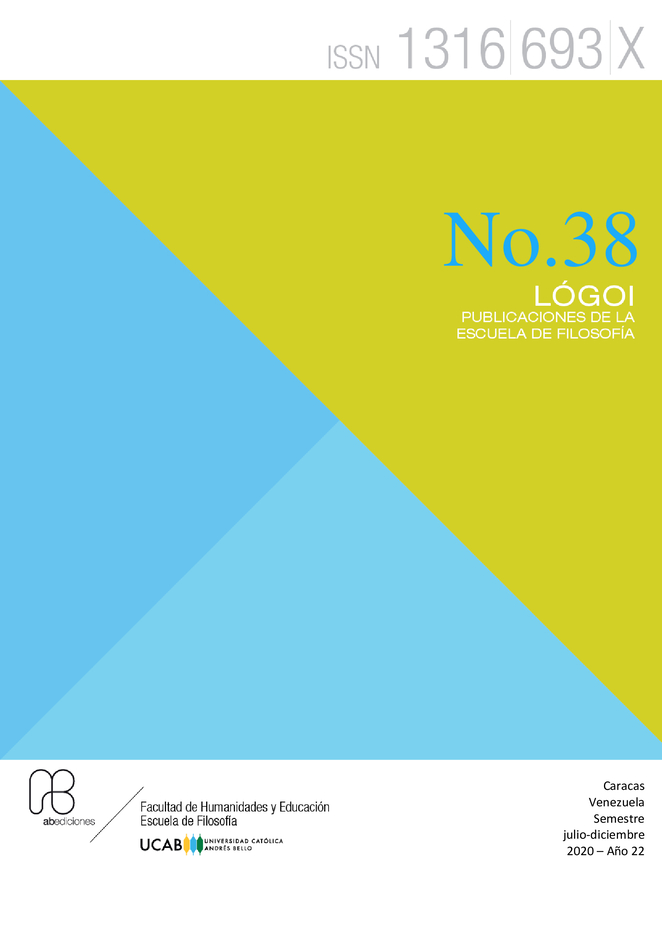First person, modality and persuasion
DOI:
https://doi.org/10.62876/lr.vi038.4634Keywords:
Linguistic operation, first person, modality, persuasionAbstract
The main aim of this article is to show, from specific cases of the language in use, the
way in which the first-person linguistic operation and some modalities interact
resulting in persuasive effects. The central thesis that we want to defend and what
everything exposed throughout this presentation is intended to support is the
following: Most of our argumentation aims to persuade the interlocutors in the sense of
making them accept a thesis, of producing or making them modify a belief, of
influencing the decision-making process and linguistic systems (in this case, Spanish )
provide techniques that can be used in linguistic constructions for persuasive purposes,
in this case, I will analyze the contribution that the first-person linguistic operation
makes to that purpose in cooperation with the modality.
Downloads
References
Akiba, D.: “Interpreting modals by phase heads”, pp. 19-49, en Elisabeth Leiss and Werner Abraham (Eds.) Modes of modality: modality, typology, and universal gramar, Amsterdam / Philadelphia, John Benjamins 2014, p. 19.
Amossy, R.: “The argumentative dimension of discourse”, pp. 87–98, en F. H. van Eemeren & P. Houtlosser (Eds.), Argumentation in practice, Amsterdam-Philadelphia, John Benjamins, 2005, p. 87
Baker, G. P., & Huntington, H. B.: The principles of argumentation. Revised and augmented. Boston, New York, Chicago, London, Atlanta, Dallas, Columbus y San Francisco, Ginn and Company 1905, p. 7
Bally, Ch.: Linguistique generale et linguistique francaise, Suiza, Francke S. A e imprenta Bern, 1950, p. 36.
Bybee, J. & Fleischman, S.: “Modality in grammar and discourse”, pp. 1–14, en Bybee, J. & Fleischman, S. (eds), Modality in Grammar and Discourse, Typological Studies in Language 32, Amsterdam, John Benjamins, 1995, p. 2.
Cfr. Iturrioz, J. L.: “La operación yusiva y la cortesía”, pp. 45-75, en Rodríguez Alfano L. (Ed.), La (des)cortesía y la imagen social en México. Estudios semiótico-discursivos desde varios enfoques analíticos, Monterrey-Estocolmo: UANL-EDICE, 2009, p. 47
Cf. Iturrioz, J. L.: “La operación PERSONA”, pp. 316-337, en Daniel Jacob et al (eds.) Romanistisches Jahrbuch, No. 60, Berlin/Boston, Walter de Gruyter, 2011, pp. 332-336.
Descartes, R.: El discurso del Método, Madrid, Gredos , 2011, p. 48.
Eemeren, F. H.,, Bart Garssen, Erik C. W. Krabbe, A. Francisca Snoeck Henkemans Bart Verheij, Jean H. M. Wagemans, Handbook of argumentation theory, Dordrecht, Heidelberg, New York, London, Springer, 2014, p. 261.
Einstein, A.: La relatividad, México, Grijalbo, 1970, p. 10
Entrevista de Borges con Joaquín Soler Serrano, 1980.
Fincato, M (2005) El camino hacia mí. Editado por el autor. Edición limitada para internet.: http://www.lamarga.com/El_Camino_Hacia_Mi.pdf, pp. 3-4.
Ibid., p. 7.
Ibid, p. 754.
Johnson, R. H. : Manifest rationality. A pragmatic theory of argument. Mahwah, New Jersey, London, Lawrence Erlbaum Associates, 2000, p. 150.
Kaufmann, M.: 2012. Interpreting Imperatives, New York, Springer. (Revised version of doctoral dissertation submitted and defended 2006 under the name of Magdalena Schwager, University of Frankfurt) 2012, p. 12.
Kratzer, A.: “The notional category of modality”, pp. 289-323, en Hans-Jürgen Eikmeyer & Hannes Rieser (eds), Words, Worlds, and Contexts: New Approaches in Word Semantics, Berlin, Walter de Gruyter, 1981, p. 290
Larreya, P. & Rivière, C. Grammaire explicative de l’anglais, Paris, Longman, 2005, p. 80.}
Lyons, J.: Semántica, Barcelona, Teide, 1989 (1977), p. 732.
O’Keefe, D. J.: Persuasion. Theory and research, Thousand Oaks, CA: Sage Publications, 2002. p. 5..
Palmer, Frank R. 2001. Mood and Modality, Cambridge, Cambrigde Univerisity Press, p. 1.
Papafragou, Anna.: Modality: Issues in the Semantics- Pragmatics Interface, Op. Cit., p. 20.
Papafragou, A. Modality: Issues in the Semantics- Pragmatics Interface, Oxford, Elsevier, 2000, p. 3. Portner, P. Modality. Oxford,: Oxford University Press, 2009, p. 1.
Perelman, Ch. y Oblrechts-Tyteca, L.: Tratado de la Argumentación. La nueva retórica, traducción de Julia Sevilla Muñoz, Madrid, Gredos, 1989 (1989), p. 48.
Portner, Paul, Modality, Op. Cit. p. 263.
RAE: Nueva Gramática de la Lengua Española, Madrid, Espasa, 2009, p. 3113.
Reygadas, P.: Argumentación y discurso, México, El Colegio de San Luis, 2009, p.17
Ridruejo, Emilio, Modo y Modalidad, Op. Cit., p. 3211.
Ridruejo, E.: “Modo y Modalidad”, pp. 3209-3251, en Bosque, I. y Demonte, V. (Eds.), Gramática descriptiva de la lengua española. Vol. 2, Madrid, Espasa, 2000, p. 3213.
Tomado del documental sobre la Memoria: “Mi memoria soy yo”.
Tomado de la canción “Latinoamérica” de Calle 13.
Van der Auwera, J. & Plungian, V.: “Modality’s semantic map”, pp. 79–124, en Linguistic Typology Vol. 2, Berlin, Walter de Gruyter, 1989, p. 81.
Vega Llamas, Elvia: Construyendo certeza. Lectura de modalidad en textos académicos, Op. Cit., pp. 40-41.
Vega Llamas, Elvia: Construyendo certeza. Lectura de modalidad en textos académicos, Op. Cit., pp. 159-161.
von Fintel K.: “Modality and Language”, pp. 20-27, en Donald M. B. (Ed.) Encyclopedia of Philosophy – Second Edition, Vol.2. Detroit, MacMillan Reference USA, 2006, p. 20.
Vega Llamas, E.: Construyendo certeza. Lectura de modalidad en textos académicos, Tesis doctoral en Estudios Literarios y Lingüísticos con orientación en Lingüística Aplicada, México, Universidad de Guadalajara, 2014, p. 19.
Zeman, S.: “(C)Overt epistemic modality and its perspectival effects on the textual surface”, pp. 457-484, en Elisabeth Leiss and Werner Abraham (Eds.) Modes of modality: modality, typology, and universal gramar, Amsterdam / Philadelphia, John Benjamins 2014, p. 457. Carretero, M. “Una propuesta de tipología de la modalidad: la aceptación como categoría modal”, pp. 41-61, en DICENDA. Cuadernos de Filología Hispánica, No. 10, Madrid, Edit. Complutense, 1992, p. 41. Kiefer, F.: “On defining modality”, pp. 67–94, en Folia Linguistica 21(1), 1987, p. 84.
Published
How to Cite
Issue
Section
License
Copyright (c) 2022 Array

This work is licensed under a Creative Commons Attribution-NonCommercial-ShareAlike 4.0 International License.










.png)











